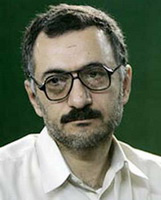Global Economic Crisis and Iranian Diplomacy in 1387
Signs of economic crisis in Iran-U.S. relations

Last year witnessed remarkable, somehow offsetting developments for Iran’s economy and diplomacy. Iran -and the world- finally parted with a great threat, i.e. Bush’s administration. The world became more dangerous than ever during the tenure of radical, warmonger Bush. With the absence of a bi- or multipolar global order, rise of militarists and radicals on United States’ political stage had created a difficult situation for independent countries like Iran.
From this aspect, global developments in the realm of politics benefited Iran. However, other issues of concern have appeared which may end in undesirable outcomes within a few years. Obama’s rise to presidency could undermine the legitimate face of Iran’s anti-Americanism in the international community. Second is the oil price which was a major obstacle against any military strike on Iran. Influenced by the current economic crisis, oil price has nose-dived and Iran has lost its strongest safeguard against foreign threats. Consequent political and social unrest inside the country could be another problem. All these developments weaken Iran’s diplomatic and geopolitical position, the likely result of which may show itself in Iran-U.S. negotiations this year.
In economy, due to Ahmadinejad administration’s economic policies Iran’s dependency on oil revenue has doubled compared to 1383 (March 2004-2005). In other words, we are witnessing a %100 percent increase. Iran had commodities and services’ import worth of 45 billion dollars in 1383. This number has increased to 90 billion dollars at the present. With Iran’s foreign revenue being 50 billion dollars at its best, we will have a trade payment deficit of 40 billion dollars this year. Added with the budget deficit, this becomes an alarming number. Iran will experience a %0 percent economic growth in 1388 (March 2009-2010) and an increase of unemployment rate. The inflation rate depends on government’s monetary policies, not less than %20 however.
Global economic crisis and a change in government’s policies
The next government, reformist or principlist, will have completely different economic policies and cabinet. I truly believe that Ahmadinejad has reached a dead-end in his economic and political policies. So it is predictable that in middle months of 1388 we would face a new chapter in Iran’s economy.
Whatever the political orientation of the next government, the new era demands a policy based on fiscal discipline, détente in the international scene, avoiding off-the-cuff decisions, respect for economics as a branch of science, building up trust with the private sector and putting domestic production in priority.

